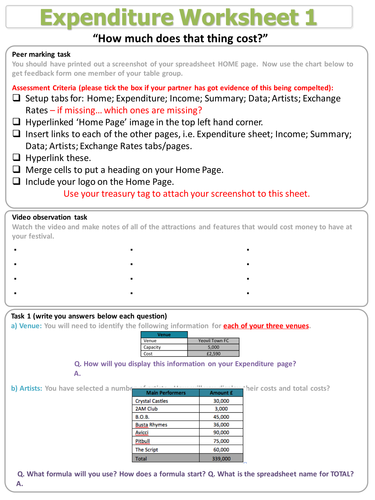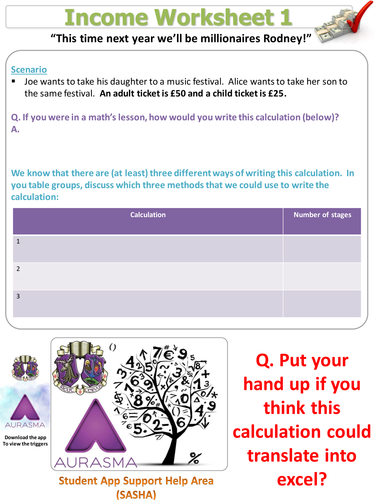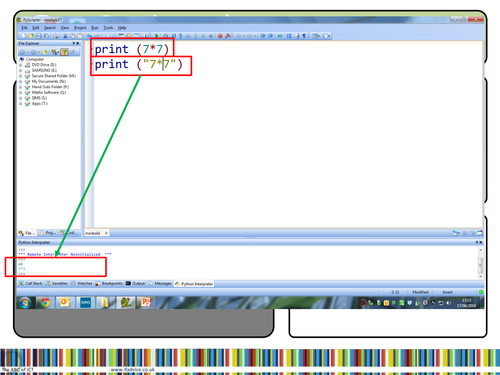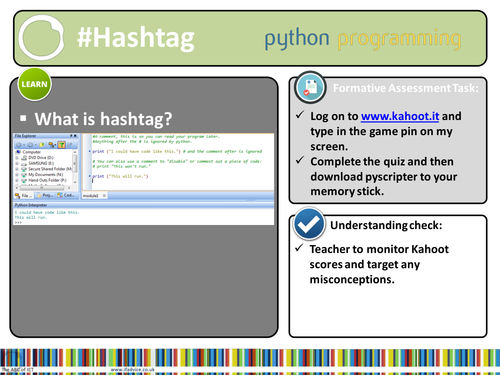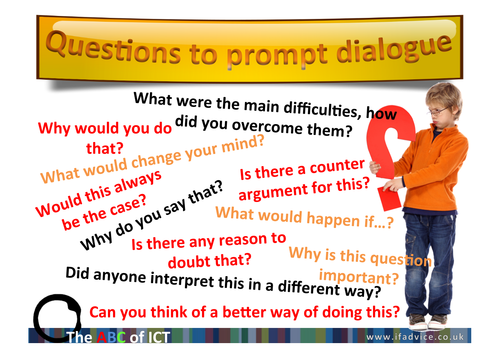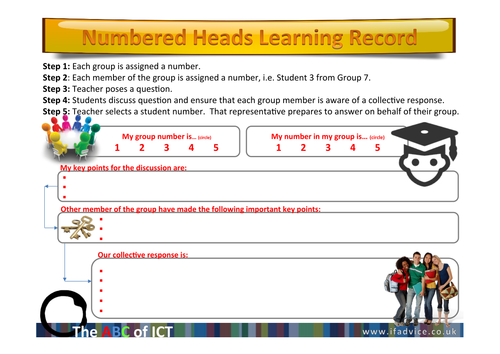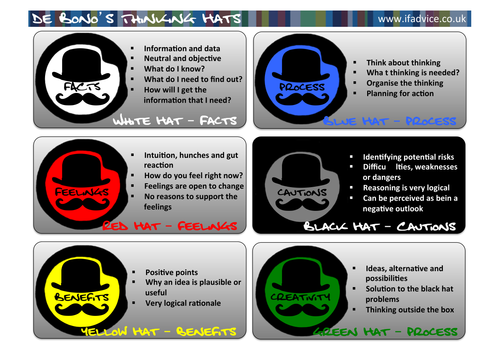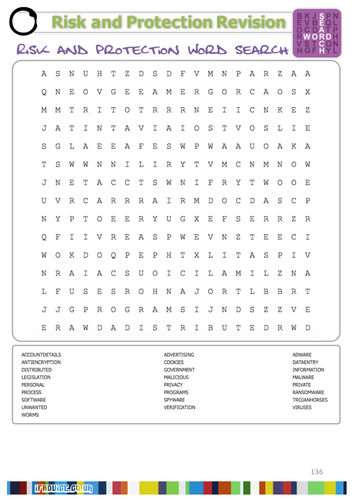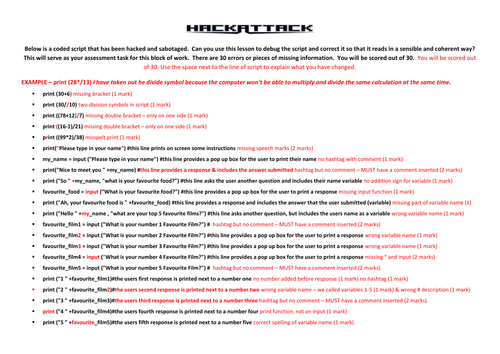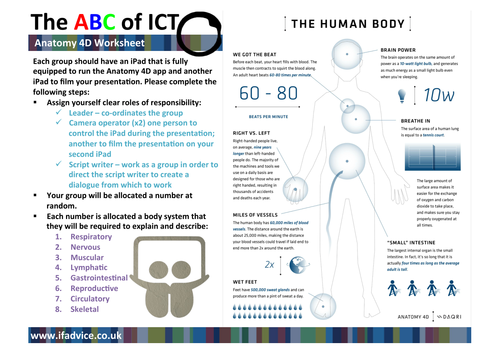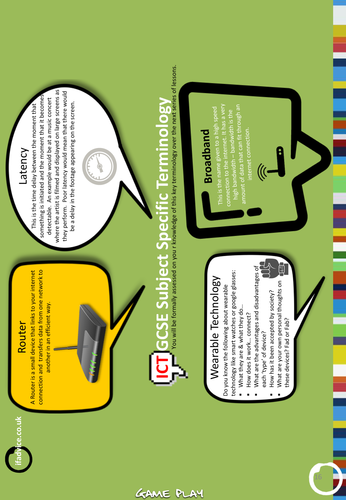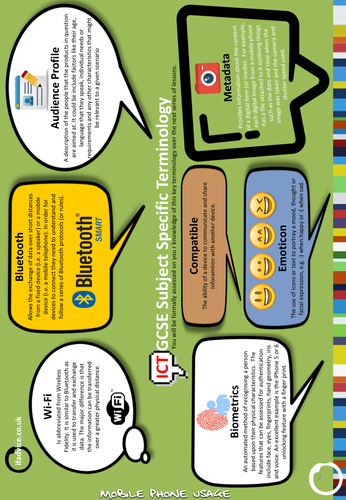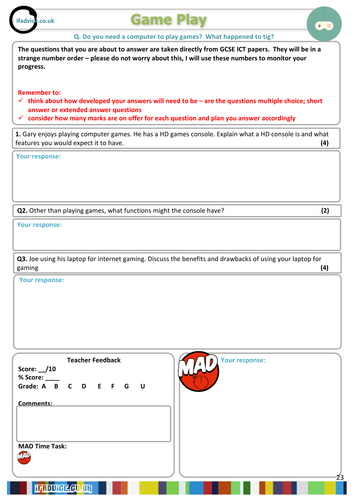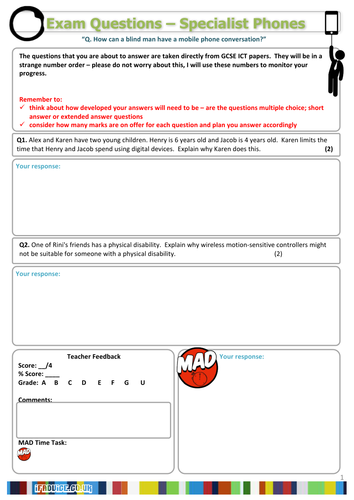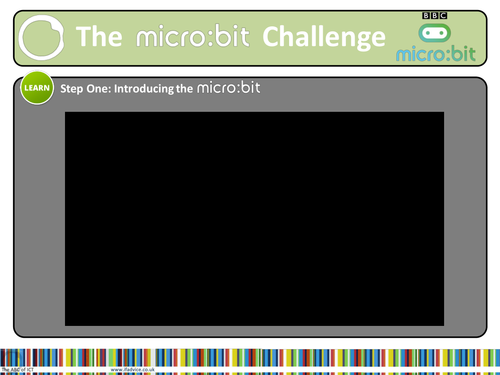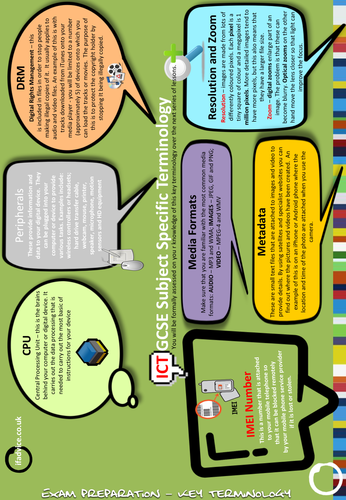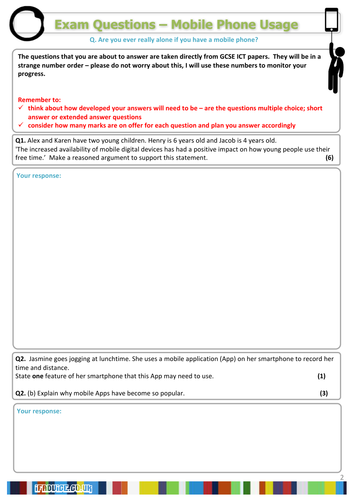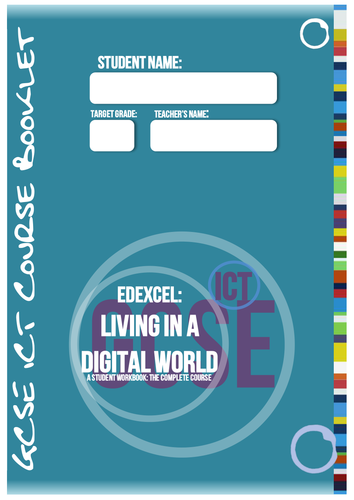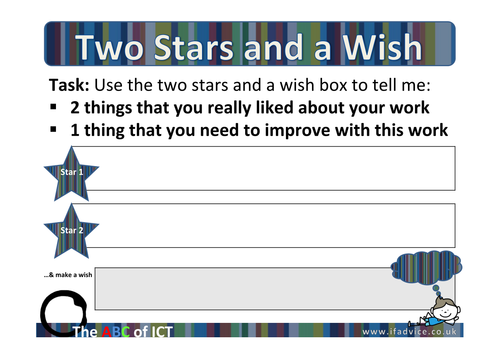
172Uploads
47k+Views
3k+Downloads
Computing

Spreadsheet Lesson 1
Spreadsheet Lesson 1 (Follow ‘ThornleighSalesianCollege’ to access Aurasma
This is a series of worksheets that I have used teaching ICT and Computer Science throughout KS3 and GCSE ICT.
Please note that the ‘follow’ is the account that we use within school - every department uses the same account, therefore the students only have to ‘follow’ one channel and the triggers will automatically be picked up.

Spreadsheet Lesson 3
Spreadsheet Lesson 3 (Follow ‘ThornleighSalesianCollege’ to access Aurasma
This is a series of worksheets that I have used teaching ICT and Computer Science throughout KS3 and GCSE ICT.
This worksheet shows how Aurasma can ‘do the teaching for you’. All I do is produce the video and students work through it at their own pace.
Please note that the ‘follow’ is the account that we use within school - every department uses the same account, therefore the students only have to ‘follow’ one channel and the triggers will automatically be picked up.

Python Programming Lesson 4 (Year 7 or younger) - BIDMAS Mathematical Operators
Python Programming Lesson 4 (Year 7 or younger) - BIDMAS Mathematical Operators
A development from lesson 3 based on BIDMAS Operators. This introduces them along with the use of double brackets for multiple calculations (to determine an logical order, as opposed to the BIDMAS order) with linked examples and exercises for each.. This is the fourth lesson that is progressive, following a scheme of learning that will be published as an overview with the final lesson of the unit.
Lessons can purchased individually or as a package. Lesson duration approximately 50-60 minutes.
This lesson also includes links to a personalised Kahoot diagnostic assessment (free sign-up).

Python Programming Lesson 5 (Year 7 or younger) - #Hashtags
Python Programming Lesson 5 (Year 7 or younger) - #Hashtags
A development from lesson 4 based on #hashtags and their use within a script. Introduction to #hashtags with linked examples and exercises for each.. This is the fifth lesson that is progressive, following a scheme of learning that will be published as an overview with the final lesson of the unit.
Lessons can purchased individually or as a package. Lesson duration approximately 50-60 minutes.
This lesson also includes links to a personalised Kahoot diagnostic assessment (free sign-up).

Questions to prompt dialogue Worksheet
Questions to prompt dialogue
I use this to prompt discussion and even written work with students. This has been particularly useful with extended writing tasks.

Python Programming Lesson 6 (Year 7 or younger) - Assessment lesson
Python Programming Lesson 6 (Year 7 or younger) - Assessment lesson
This is a two-part assessment of the work completed within this block of work. This is the final lesson of a progressive learning programme, following a scheme of learning that will be published as an overview with the final lesson of the unit.
Lessons can purchased individually or as a package. Lesson duration approximately 50-60 minutes.
This lesson also includes links to a personalised Kahoot diagnostic assessment (free sign-up).

GCSE ICT Key Terminology Poster 16
GCSE ICT Key Terminology Poster 16 - used around the classroom to help students learn the key terminology related to each topic covered.

GCSE ICT Key Terminology Poster 2
GCSE ICT Key Terminology Poster 2 - used around the classroom to help students learn the key terminology related to each topic covered.

BBC Micro:bit (Microbit) lessons 2
I have been using these lessons challenges with a series of groups and they appear to have been really well received.
Like many professionals, I have been trying to get to grips with the Micro:bit and find resources or lessons for my students to have a go at. There are loads around and this is a collection of progressive tasks that I think have been put together in a really coherent way for the teenage mind. Each one is a video tutorial which will guide your students through each step and provide them with the theory behind each decision made in the program.
Includes 'Loops'.
I would love to know your thoughts and I will add more, as and when they arrive.
I have used this resource over three lessons... a great filler once the students get to grips with it.
This also now includes a Python activity as well as Block Editor challenges.
in terms of assessment and monitoring progress... I have been keeping a very simple spreadsheet and inputting when the student has been to show me their finished task - this means that I can open a dialogue with the student and find out what they found easy/difficult with the task, as well as being able to redirect them onto another task or target misconceptions.

GCSE ICT Key Terminology Poster 18
GCSE ICT Key Terminology Poster 18 - used around the classroom to help students learn the key terminology related to each topic covered.

GCSE ICT Course Booklet ABC of ICT - For US market
This course booklet contains all of the:
- worksheets
- chunking/terminology activities for each lesson
- homeworks
- associated mind map and revision activities
- revision activities
- literacy activities
- differentiated word searches and crosswords
I issue each student that I teach with this booklet and we work through it with the associated PowerPoints (these can be supplied upon requested but they have been put together with the assistance of my colleague, so I will not be putting them on for sale).
The booklet starts with a specification checklist and a PLC activity for each unit of work.
Each lesson starts with the associated chunking/terminology and then features lesson content and an associated home task (past paper of exam-style questions). I work through these one lesson at a time and test the terminology/chunking knowledge in the next lesson (usually a practical or CAB lesson).
At the completion of each teaching block, student create their own mind map.
At the end of the course are some revision activities and high quality mind maps.
This is the complete document for teaching the Edexcel GCSE ICT theory components.
This document last my classes for two years.

2 Stars and a Wish Worksheet
2 Stars and a Wish Worksheet to accompany the 2 Stars and a Wish activity.

